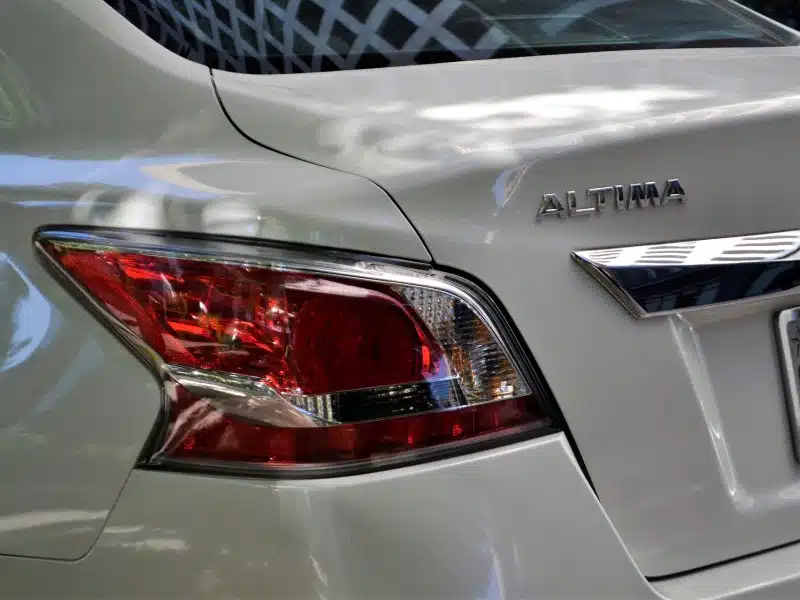Table of Contents
It is rare to see a manufacturer have almost zero complaints about the engine of a vehicle and the Nissan Altima engine issues are some of the more frustrating due to having so many reported. Granted, it is still a good and reliable vehicle, but you need to make sure you have an understanding of the most common issues you could face.
The Nissan Altima fuel pump issue is one of the most commonly reported engine problems and also one of the first noticeable issues that needs fixing. Models from 2001 to 2015 were recalled in an attempt to fix this issue, with newer models being better designed. However, some 2019 models were also recalled due to the retainer clip on the fuel pump not locking.
While Nissan has always been a very reliable brand, some of these issues on the Altima could be frustrating for some people to work with. We have gone deeper to help you understand the most common engine issues that you could encounter with the Nissan Altima. We will also look at possible solutions.
Nissan Altima Engine Issues
It is best to understand which engine issues you could be dealing with before you buy a vehicle. This would ensure that you are effectively prepared for what could go wrong. It also enables you to take preventative measures when possible. Here are some of the most common issues, you could be dealing with for your Nissan Altima:
1. Fuel Pump Issues

Problem: The first issue is the fuel pump. We have addressed this issue, but it has led to several recalls of the vehicles. The fuel pump is often incorrectly mounted and it might even tear. Due to these tears, the vehicle could have fuel leaks and prevent efficient fuel from reaching the combustion chamber.
Solution: While not everyone has experienced these issues with the Nissan Altima, if you are one of the unfortunate owners, you can take your vehicle to your local Nissan dealership. Due to the severity of the issues, Nissan will replace the fuel filter if problems are detected.
2. Delayed Throttle Response

Problem: If you press the gas pedal notice a stuttering or jerking sensation when the vehicle pulls off, you could have a defective Continuously Variable Transmission (CVT). The issue can be solved and the transmission fixed, but many people choose to ignore this problem. Unfortunately, this often leads to a full transmission failure.
Solution: The one upside to this problem is that it has more to do with the software of the vehicle than any hardware components. Once you notice the issue, you could take it to the Nissan dealership and a few software checks will be done. You will find that an update in the software is often enough to fix the CVT.
3. Camshaft/ Crankshaft Position Sensor Failing

Problem: If you get into your vehicle and you try to start the car, but nothing happens, you could be dealing with a crankshaft or camshaft failure. However, it is not the direct components that often fail, but rather the position sensor of these components. You could notice the issue with frequent stalling of the vehicle.
Solution: Many of these incidents are often only one sensor that fails. However, history has shown us that if one fails, the other one soon follows. Should you notice this issue with your cam and crankshaft, you could consider replacing them. We would recommend replacing both of them to prevent any more issues.
4. Severe Engine Leaking

Problem: A leaking engine is one of the hardest things you can deal with in your car. With the 3.5-liter V6 model, the cooler o-ring has been found to leak significant levels of oil. It is often due to an oil change when the seal is dislodged. You could find that plenty of oil and engine coolant might leak when the car is standing still.
Solution: The o-ring should be replaced if the seal is dislodged. However, you might also need to check the oil cooler for potential damage. Once you have replaced these two, you should be ready to continue using your vehicle without having any leaks. While you could just replace the o-ring, the oil cooler might also be defective, which makes it useful to replace both.
5. Misfires/ Rough Idle Issues

Problem: The Nissan Altima is one of the vehicles that you can rely on to possibly take you past 150,000 miles. However, an engine vacuum leak can often be identified when problems occur with the intake manifold gasket. It often also lights up the check engine light and you might notice the vehicle having misfires when accelerating.
Solution: Even though you could still drive the vehicle with this issue, it is worth noting that you risk damage to other components. It is best to stop the vehicle and get it to your local mechanic. Fixing the vacuum leak inside the engine should be an easy fix, but you could severely damage some of the other components.
FAQ
Which Nissan Altima Models Have The Worst Issues?
Being one of the oldest Nissan models, there are a few Nissan Altima models that are more prone to problems than others. The 1991 to 1993 models were some of the first to be recalled. However, in the 21st Century, the models from 2001 to 2015 have been recalled due to fuel pump issues. Subsequent models have had fewer possible issues.
How Long Does The Nissan Altima Engine Last?
While some of the older Nissan Altima models had a fair amount of issues when it comes to the engine, some of the newer models are slightly more reliable. Even with the fuel pump fixes and numerous smaller engine issues, the Nissan Altima could still give you between 200,000 and 300,000 miles. However, doing regular maintenance is often the best way to ensure you get the most out of your vehicle.

